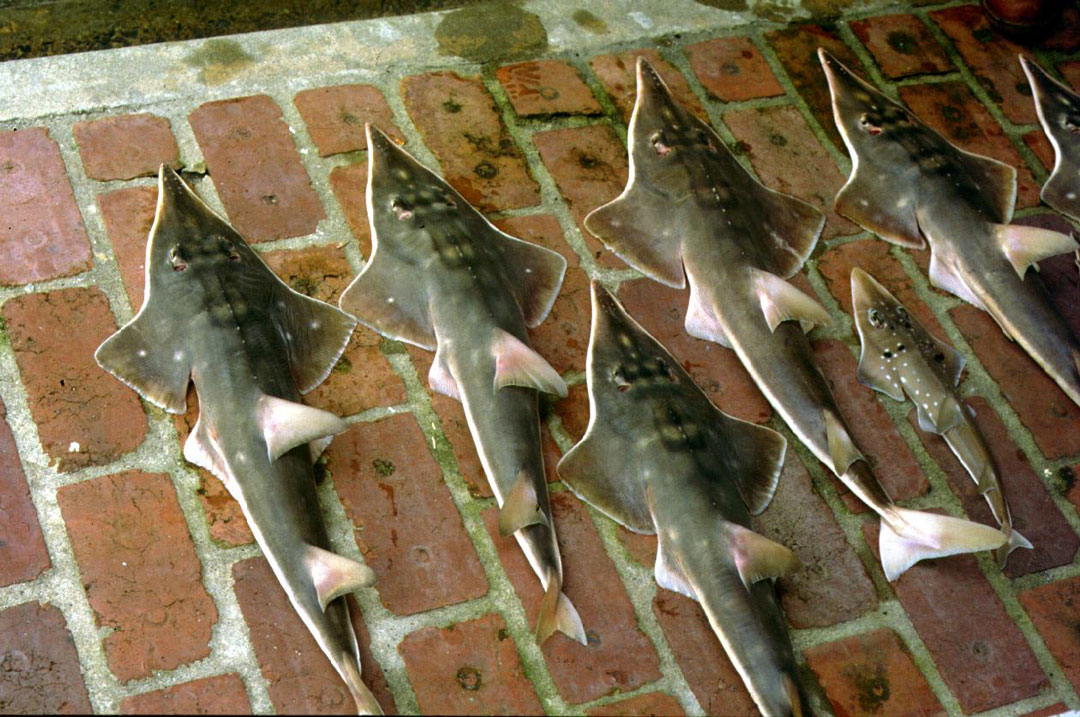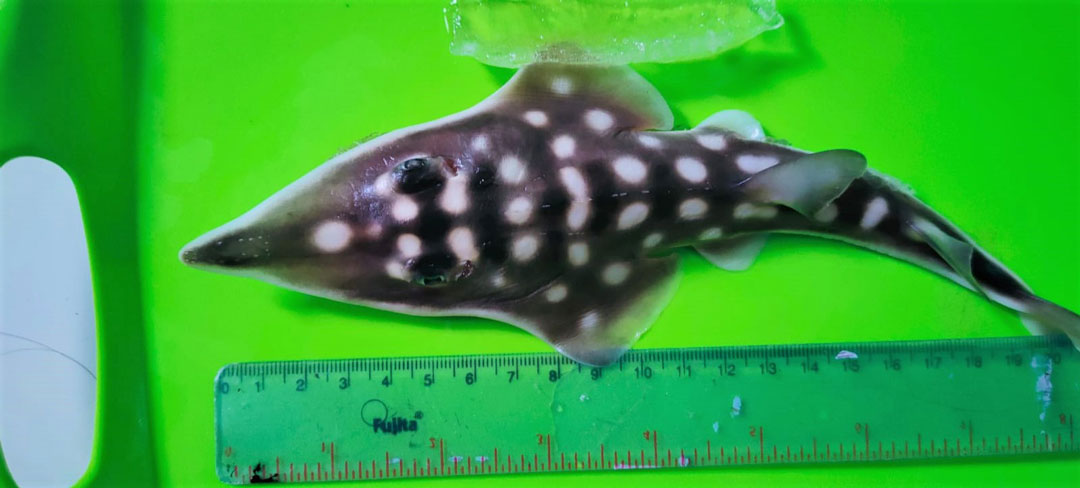Tearing up the obituary for a lost wedgefish
Nearly all wedgefishes are Critically Endangered on the IUCN Red List of Threatened Species. A Critically Endangered assessment means a species is at an ‘extremely high risk of extinction’. Such severe assessments are not made lightly. They must consider a lot of different information and data, for example, to demonstrate how a species has declined over time.

Caption: A historic photo of early records of Clown Wedgefish from a Singapore fish market. Photo © Leonard Compagno.
In gathering all this information to assess the status of wedgefishes globally, we were alarmed at a lack of information on one Southeast Asian species. There were simply no contemporary records of the Clown Wedgefish (Rhynchobatus cooki). Could this species already be lost?
The Clown Wedgefish is the smallest wedgefish species (<1 m in length) and was known only from fish markets in Singapore and Jakarta, Indonesia. There was a complete lack of information on where it lived in the wild. These fish markets land catches from far and wide, so we couldn’t even be really be sure that the species occurred locally.

Coastal community, Riau Islands, Indonesia. Home to the Clown Wedgefish. Photo © Benaya Simeon.
Without a known record since 1996 in a well-surveyed and heavily fished area, colleagues and I had drafted a Red List assessment designating the species as Extinct. Put another way. We had drafted the obituary for this species. We thought we were looking at the first modern shark or ray extinction.
But then we received the best possible news. Naomi Clark-Shen and colleagues from Singapore had found a Clown Wedgefish in a fish market. They subsequently published their paper ‘Not yet Extinct: Rhynchobatus cooki is found after being unseen for over 20 years’.

Caption: A Clown Wedgefish pup. Photo © Eni Caturini.
We quickly revised our draft Red List Assessment to Critically Endangered since the evidence was available that the species persisted. However, with the new record again coming from a fish market, we still had no idea of the species’ wild range.
Surprisingly, it turns out that social media would lead us to the answer. Matthew McDavitt was examining online photographs of seafood for sale in the remote Riau Islands of Indonesia and discovered right there in the catch, a Clown Wedgefish. Further social media posts revealed more catches landed from local artisanal fishing activities.
Finally, we knew where the Clown Wedgefish resided. We then knew we had to develop a project to get at the heart of the status of this once-lost species and to guide its conservation. The idea behind the SOSF Keystone Project, The Clown Wedgefish: No Laughing Matter, was born.
